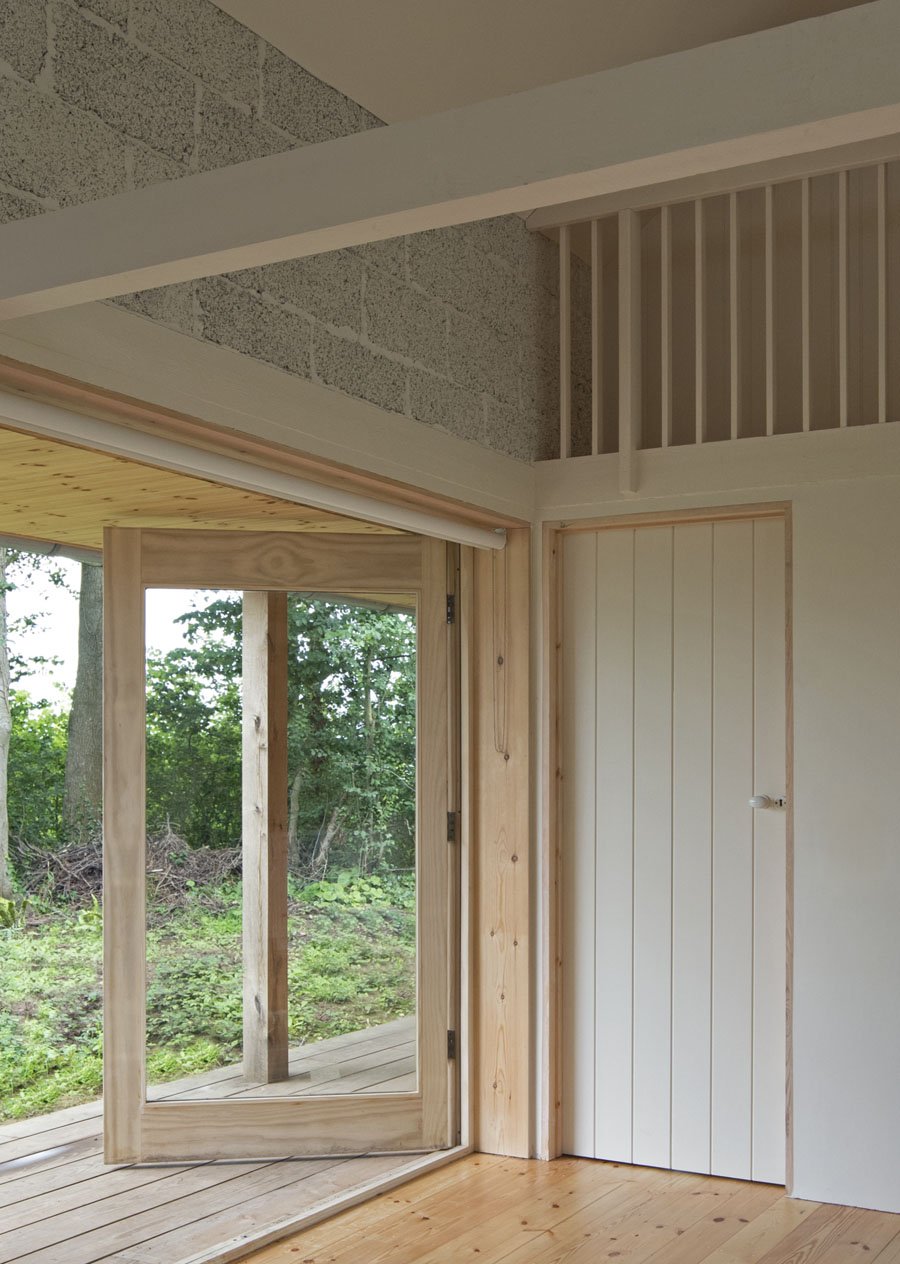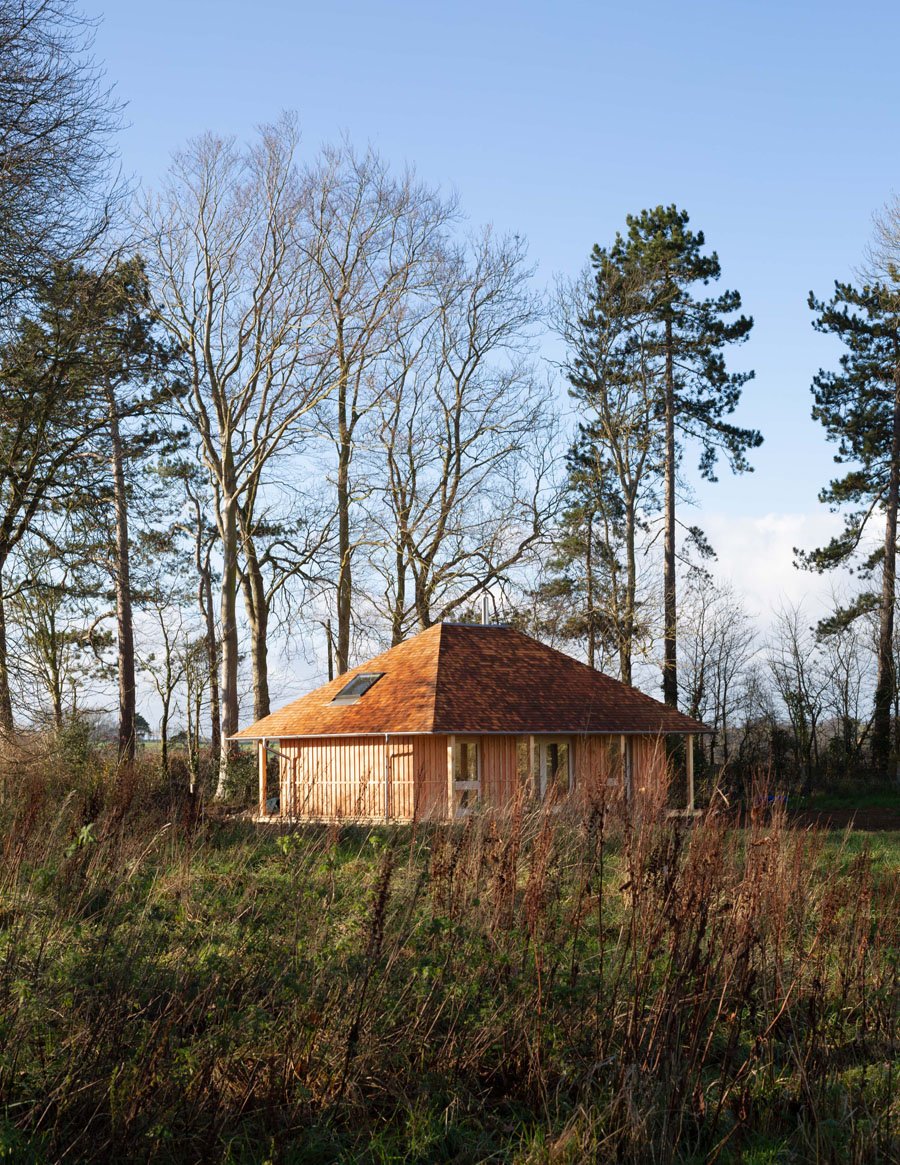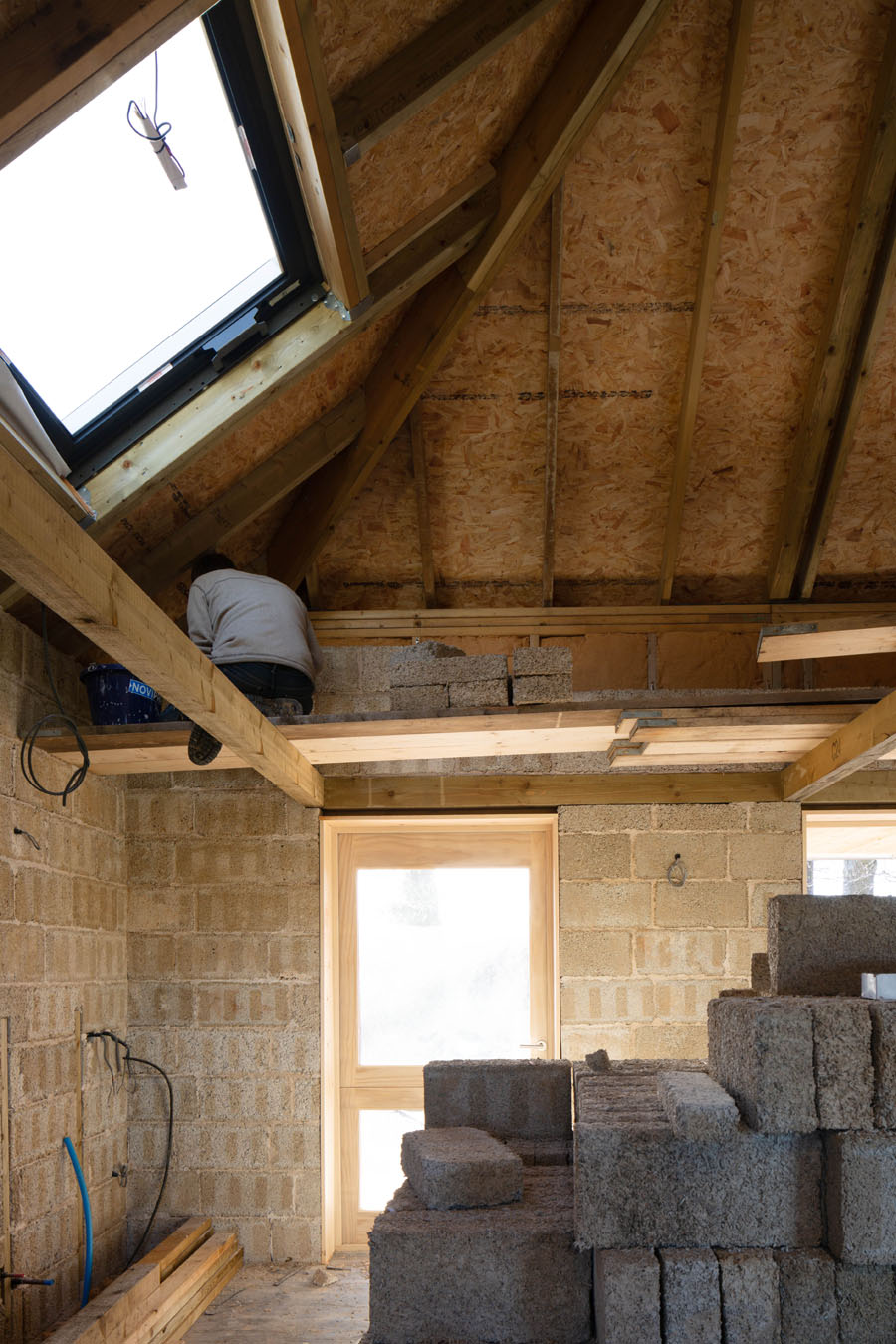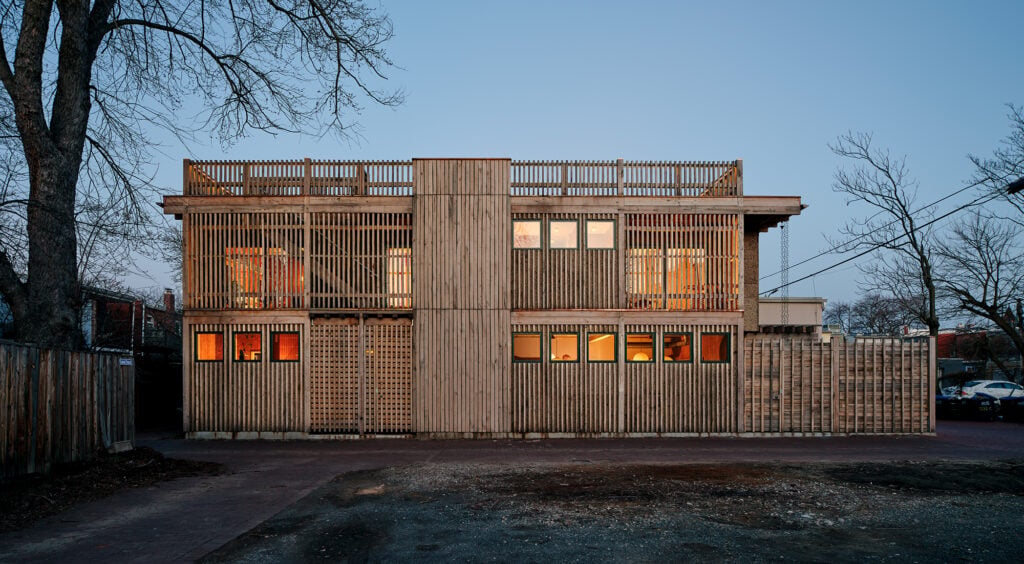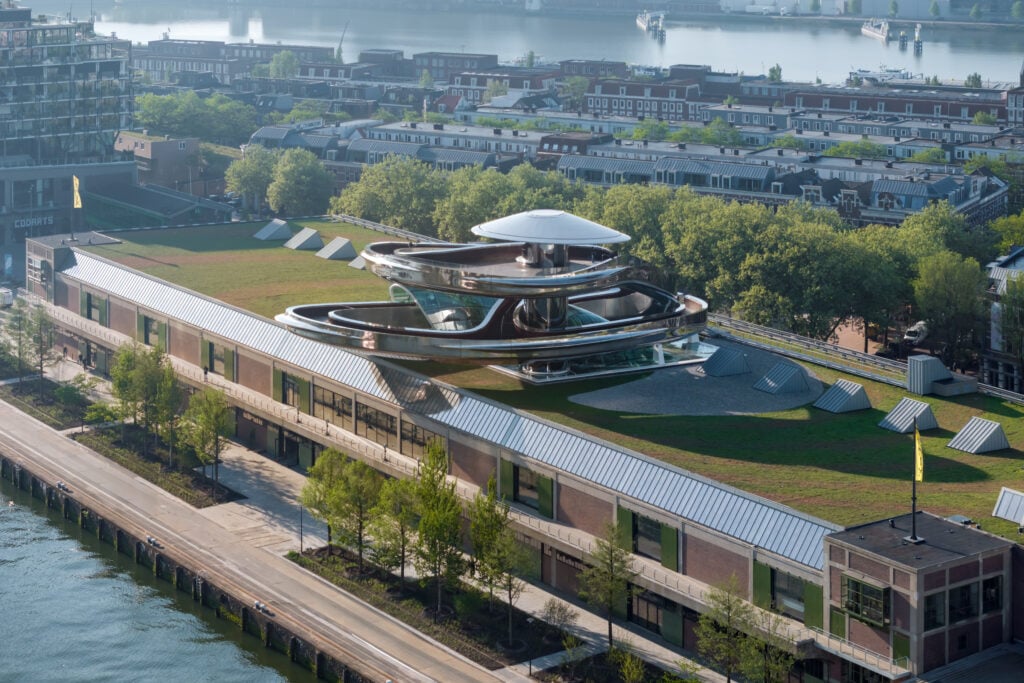
July 13, 2022
The Future Is Hempcrete
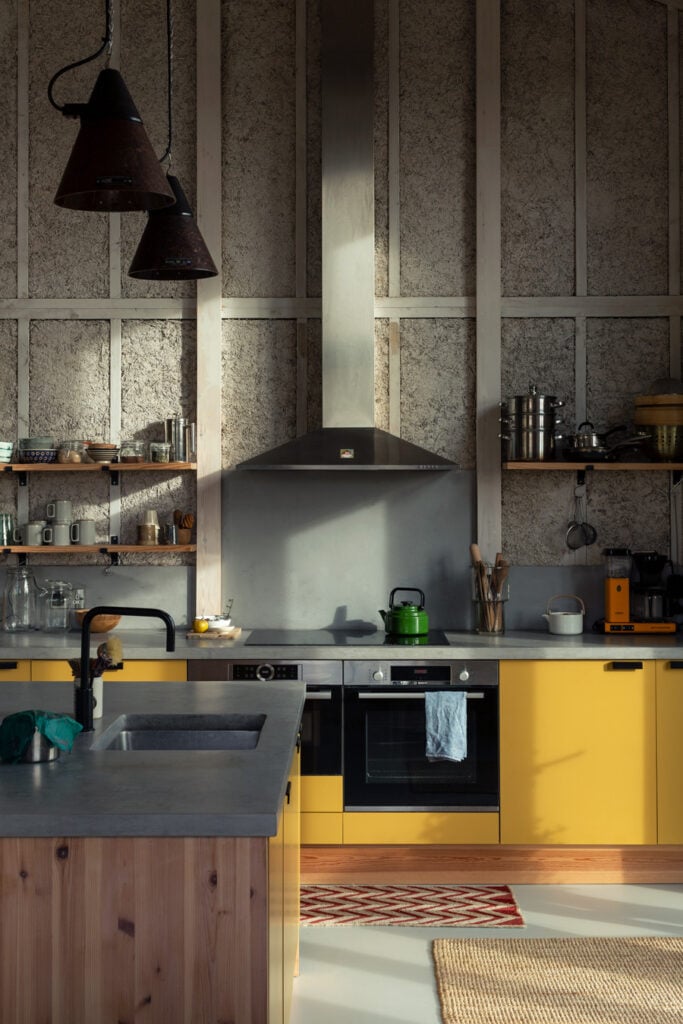

Among Allin’s case studies are The Triangle, a housing project designed by Glenn Howells Architects in the UK town of Swindon that features timber-framed units filled with cast hempcrete, and Case di Luce in Bisceglie, Italy, an apartment building designed and built by Pedone Studio and Pedone Working in which hemp was used in plaster and precast blocks.
Hempcrete was first pioneered in France in the 1990s, but construction certification issues and strict agricultural licensing requirements have hampered progress. As the climate crisis deepens, however, the urgency to find planet-positive design solutions is pushing architects to experiment. At Margent Farm, a hemp farm in the UK county of Cambridgeshire, Practice Architecture used hemp shiv harvested from the surrounding fields to build a house for the owner and his family in 2019. Flat House was constructed using prefabricated panels of planed timber and engineered I-joists, with a hempcrete infill made at HG Matthews’s Brickworks in South Buckinghamshire.
Last year, Practice Architecture’s sister company Material Cultures teamed up with Studio Abroad to build a 968-square-foot, timber-framed home in Somerset, called Block House. Made from locally sourced timber, hempcrete blocks, and wood-fiber insulation, the house sits on flint foundations designed to have minimal impact on the environment. Often hempcrete is hidden from view by heavy lime renders, but the architects have chosen to express hemp textures in the interior of the buildings, making them a clear part of the material palette.
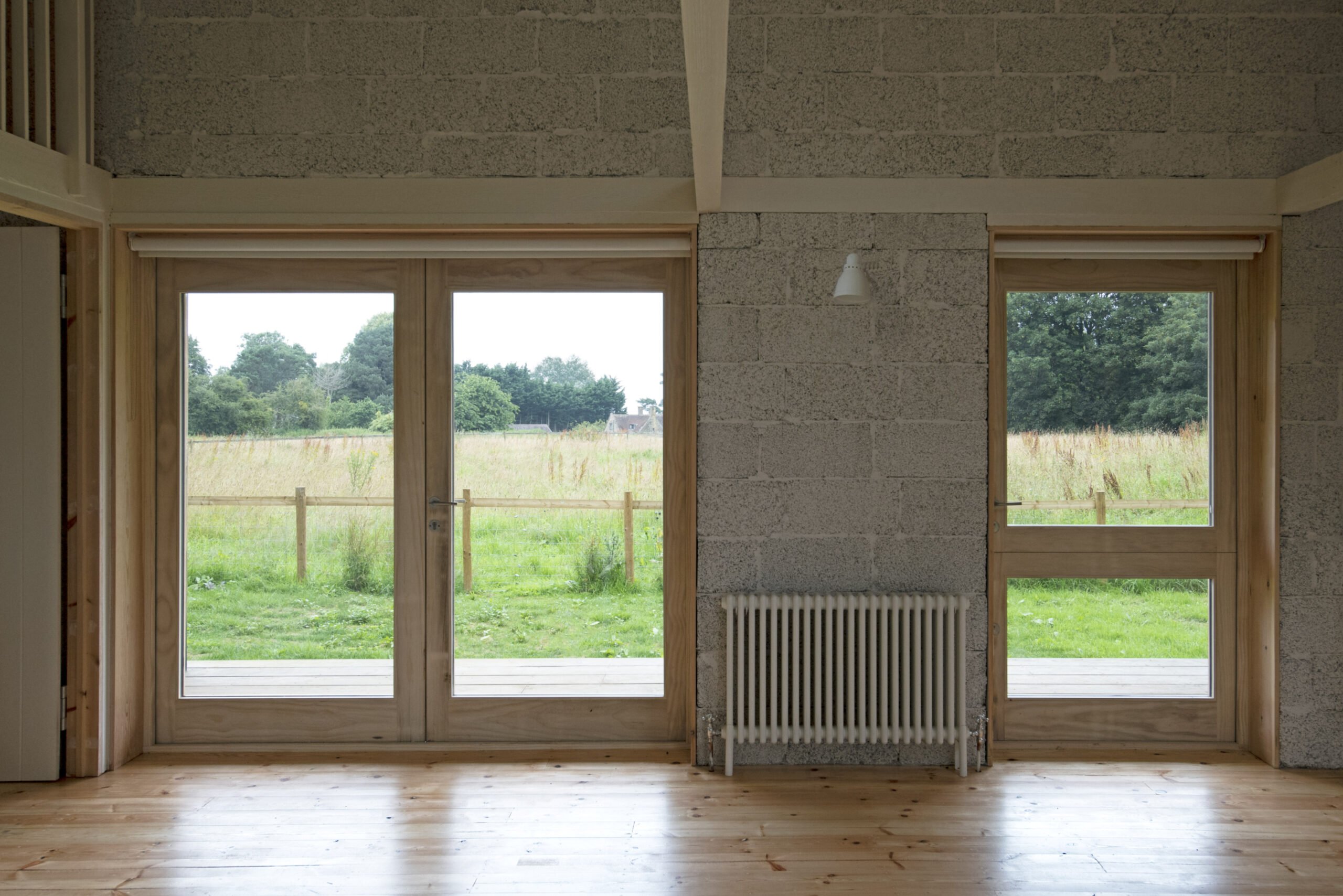
“Hempcrete is versatile, beautiful, and breathes moisture,” says George Massoud, a director of both Material Cultures and Studio Abroad. “Crucially it’s also natural and speaks to a future where we could grow all the materials we work and build with.”
Elsewhere in Cambridgeshire, Jonathan Tuckey Design received planning permission last year for Hempcrete House, a contemporary extension to a Victorian villa in a conservation area, and more recently, a new-build home made from hempcrete blocks atop a hill in Surrey, which is currently under construction. Hempcrete isn’t certified as load bearing, which means it requires a structural system made from a material such as wood, but Jonathan Tuckey Design has made a virtue of this in the design of the Surrey house. “We are leaving the timber beams exposed, in a nod to some Arts & Crafts country houses,” says project architect Rob Leechmere.
The practice was drawn to hempcrete due to its carbon capturing credentials, and its insulative value, thermal mass, and breathability. “It requires a shift in thinking from the traditional building science of wrapping buildings in membranes,” Leechmere adds. “You have to understand that this is a type of construction that facilitates moisture movement.”
In America, the use of hempcrete in architecture has been held back by red tape, but the United States Hemp Building Association submitted hempcrete insulation for certification in building codes earlier this year. Companies such as HempBlock USA and Hempitecture already supply hempcrete products, and researchers at Texas A&M University are working on a plan to 3D print new “resilient buildings” using the biocomposite, exploring its potential to increase the availability of affordable housing while lowering its environmental impact.
Growing industrial hemp is legal in 47 states in the U.S., so we can expect to see a new crop of hempcrete buildings sprouting in the years to come.
Would you like to comment on this article? Send your thoughts to: [email protected]
Related
Profiles
BLDUS Brings a ‘Farm-to-Shelter’ Approach to American Design
The Washington D.C.–based firm BLDUS is imagining a new American vernacular through natural materials and thoughtful placemaking.
Projects
MAD Architects’ FENIX is the World’s First Art Museum Dedicated to Migration
Located in Rotterdam, FENIX is also the Beijing-based firm’s first European museum project.
Products
Discover the Winners of the METROPOLISLikes 2025 Awards
This year’s product releases at NeoCon and Design Days signal a transformation in interior design.



